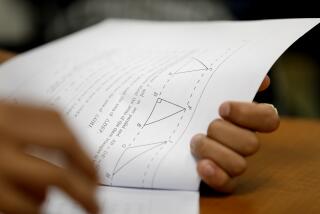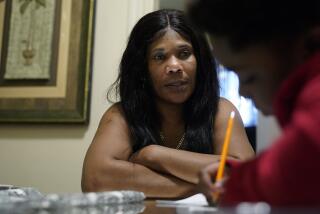Finding School Problems Early
- Share via
Kids Who Underachieve by Lawrence J. Greene (Simon & Schuster: $18.95).
Tamara, a charming teen-ager, tried to manipulate her parents into accepting her Cs and Ds; Michelle, whose father attributed her poor grades to laziness, was working more than two academic years below her class, while 13-year-old Craig, raised by a single parent and forced to move often, tested on a second-grade level.
Underachieving kids, says Lawrence J. Greene, director of two Northern California learning disability schools and author of “Kids Who Hate School,” fall into three categories: generalized underachievement (those functioning below their potential); selective achievement (those great in music, for example, but terrible at math) and non-achievement (poor all-around academic and social skills, resulting in low self-esteem).
The importance of catching floundering children early can’t be overemphasized, and to this end, Greene offers useful checklists to help parents identify learning disabilities:
After making sure the child’s IQ range is normal, watch for poor reading comprehension, letter and number reversals, illegible handwriting, spelling and grammar difficulties and poor planning and organizational skills.
If a child exhibits these shortcomings, in addition to a limited attention span and “chronic irresponsibility,” help should be sought.
Basic to success in school are a healthy ego, motivation, interest, perseverance and an equable emotional climate. Greene suggests a number of ways parents can encourage and teach the child, while suppressing their own irritation or shame.
This important book teaches us to diagnose learning problems early and take speedy action.






